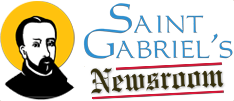First National Symposium on Euthanasia and Assisted Suicide
The First National Symposium on Euthanasia and Assisted Suicide was held on May 2 and 3 at the RAMADA Plaza hotel in Minneapolis, Minnesota. The conference was hosted by the Euthanasia Prevention Coalition, Human Life Alliance and Pro-Life Healthcare Alliance.
https://www.youtube.com/watch?v=60shihZygKQ
The First National Symposium on Euthanasia and Assisted Suicide was held on May 2 and 3 at the RAMADA Plaza hotel in Minneapolis, Minnesota. The conference was hosted by the Euthanasia Prevention Coalition, Human Life Alliance and Pro-Life Healthcare Alliance. The purpose of the gathering was to inform attendees about the real and growing threat of stealth euthanasia and assisted suicide. The organizers hope to build a movement that assures that the sacredness of human life and human dignity are respected in hospitals, nursing homes and health care programs and by governments. The organizers are developing a network of patient advocates, lawyers, doctors, nurses, administrators, clergy and others to serve those in need.
Two workshops were held before the main conference began. The first was entitled the “Coalition Building Workshop.” It brought together people from around the U.S. and Canada to learn, strategize and organize against the legalization of assisted suicide and euthanasia. Participants heard from leaders who had effectively fought against pro-death legislation in their own states. The second workshop was entitled “Patient Advocacy,” presented by Julie Grimstad, a long-time patient advocate. Attendees were taught what patient advocates are, what they do, and why there is an urgent need for them. Patient advocates safeguard the welfare of a patient in the healthcare system and alleviate the suffering of a lonely person who needs a friend. During the main portion of the conference, Alex Schadenberg, Executive Director of the Canadian-based Euthanasia Prevention Coalition, gave two major talks. He pointed out which U.S. states and nations have legalized assisted suicide and/or euthanasia and explained some of the legal battles that have been or soon will be fought over this issue. Alex presented some of the common pro-euthanasia arguments and how pro-lifers can counter them. “I don’t want the law to give my doctor the power to kill me,” he said. He also revealed many of the abuses in nations and states where euthanasia and assisted suicide have been legalized.
https://www.youtube.com/watch?v=60shihZygKQ
Bobby Schindler gave two of the most poignant talks at the conference, explaining how his sister, Terri Schiavo, was taken off her feeding and hydration tube and starved to death and how the media completely distorted the facts around her case. “Many large institutions are our enemies” in the euthanasia battle, he said. The court’s decision to define nutrients administered via feeding tube as “medical treatment” has put many lives in mortal danger, he said. Ryan Verret of Louisiana Right to Life explained his work to protect the elderly and the vulnerable in Louisiana and how he worked to defeat “Question 2” in Massachusetts that would have legalized doctor assisted suicide in that state. Jennifer Hamann explained her horrible ordeal when she was a patient in a comatose state. During that time, she could hear medical personnel speak about her in a dehumanizing manner and express their wish to harvest her organs, but she could not respond. The experience motivated her to become a pro-life nurse who emphasizes that each patient must be treated humanly, regardless of his or her condition. Mark Pickup, a well-known pro-life advocate, explained how his disease eventually meant life in a wheel chair. Before his illness, he was an accomplished guitarist. Eventually, he was not able to play. One day, his grief led him to saw his expensive guitar in half. Mark’s inspiring talk emphasized the ability of the human soul to find contentment in the face of great suffering through faith in God.
Julie Grimstad spoke on the dangers of Living Wills, futile care policies, the brain dead definition, the Patient Self-Determination Act of 1991, and POLST. Such approaches to end of life care often amount to stealth euthanasia and put cost savings ahead of protecting the sanctity of human life. “It’s easy to manipulate sick and dying people in a medical institution,” she said. Julie is the founder and executive director of Life is Worth Living and the chair of the Pro-life Healthcare Alliance.
The founder of Catholic Hospice, Cristen Krebs, spoke on the growing trend of hospice care and the difference between pro-life, patient focused hospices and those that put profits before patients.
Mary Kellett is the founder and director of Prenatal Partners for Life, a ministry that offers support to families that receive an adverse diagnosis before or after the birth of their child. Mary spoke about her son Peter who was diagnosed with a disability before he was born. She was pressured to abort, but refused. She was lied to repeatedly by health care professionals concerning her child. Their negligence and disregard for Peter eventually contributed to his death. “Doctors become very dangerous when they decide who has value and who does not,” she said.
Three term State Representative from New Hampshire Nancy Elliot spoke on how she helped defeat bill HB 304, a physician assisted suicide bill, and a similar bill, HB 513. “When doctor assisted suicide is accepted, many people are steered away from medical care,” she said. “We could have stopped the legalization of abortion back in the early 1970s, if we had the will. We are now at that point with Euthanasia. It’s up to us,” she said.
